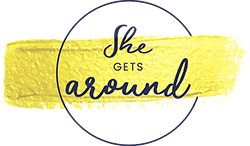Self Isolating in the Zimbabwean Bush – Guest post
As I get excited about seeing a squirrel in the garden, Hannah Tranter, today’s Guest blogger is watching Elephants and Cheetahs walk by her Zimbabwe home. Hannah is self isolating in the Zimbabwean Bush. Not your typical self isolation but normal life for many people living and working on or near some of Africa’s National Parks.
Seeing a Cobra eat another snake or a Cheetah sunbathe in the long grass is a daily occurrence for Hannah. Self Isolating in Zimbabwe is quite different to life in Matlock, Derbyshire, that’s for sure!
Hannah was living in Zimbabwe with her boyfriend before lockdown. In some ways things haven’t changed that much for them since the Covid19 lockdown began!
Hannah regularly shares her experiences on her own blog. Below she tells us the pros of self isolating in the Zimbabwean Bush and how Covid19 might affect those who live in or near Hwange National Park.
As Covid-19 has seemingly turned the world upside down, most people find themselves on lockdown, confined to staying at home. My ‘home’ for the best part of the last five months has been the Zimbabwean bush. So here I am, waiting out the lockdown and bracing myself for whatever is to come next, in the middle of the animal kingdom.
There are certainly some pros and cons to living in the bush during a pandemic, but here are 5 reasons why it’s a great place to self isolate.
5 great things about self isolating in the Zimbabwean Bush
The Space to Breathe
The sheer vastness of the area really is invigorating. We are living at Imvelo Safari Lodges in Hwange National Park. The park is 14,651 sq km and the largest national park in Zimbabwe. That much space, in today’s day and age, is very precious!

Bush TV
No Netflix or sports channels here and the wifi is so slow we struggle to watch a YouTube video. Just a fire to sit round and the wild, real life ‘Bush TV’ to captivate us while we wait for the brai to be ready.
The African sunshine
The African sun is so strong; aside from fuelling life in the bush, it provides us with electricity and allows us to pump water out of the ground. This provides a lifeline to wildlife and people living in an area with very limited surface water.
Not to mention the incredible orange African sunsets we are regularly treated to.

Our neighbours at Hwange National Park
You peer out of your tent window and get a small nod and maybe a little trumpet from a gentle giant. Elephants wander through the camp, quietly and unassumingly, leaving behind their spore, and an enormous amount of elephant poo, which the beetles are quick to harvest.
Roaring lions become your alarm clock and the hm hm hmmmms of hippos warn you of going out for a midnight bush wee.

You are surrounded by wildlife: the small, including strange insects you can’t even imagine, and the big. There are also the cheeky ones – monkeys coming in and eating your lunch or attacking your peanut butter jar. I guess we all have those neighbours we’re less fond of!
The isolation in the bush
No cars zooming past, no drunks passing by, no planes overhead, no distant lights. No crowds, no queues, no traffic. And quite frequently no internet!
Isolation from society in its purest form: no pubs, restaurants, concerts, no walks or jogs, no coffees with mates, days in the office, no popping to the shop and no bumping into friends on the street. So right now, Self Isolation in the Zimbabwean Bush probably isn’t different to isolation during lockdown in the UK… well except for the lions!

Reality of Life in the Zimbabwean Bush
The way I’m getting to know the bush is very privileged; I’m ‘camping out’ at a lodge, where we have a vehicle, running water and fridges. Just like a tourist that comes to visit for a few days, I’m still in awe of the wildlife.
But the bush is quite different for the people who live just outside the park, especially in difficult times like periods of drought.
Last year alone, hundreds of animals within the park died of thirst. Thirsty or hungry elephants wander into the villages, raiding crops and destroying fields in just a few seconds; fields that were to sustain an entire family for a whole year.
Lions, hyena and wild dogs attack domestic livestock including cattle that represent villagers’ livelihoods.
Savings, properties, food stocks wiped out entirely by the very wildlife people travel from across the world to come and admire.
Unsurprisingly, villagers view these animals as a burden, as pests and as a real threat to their livelihoods.

How Covid19 is affecting those who live in the Zimbabwean Bush
The good thing about tourists is that they bring funds to the area; safari operators reinvest these funds to protect wildlife and the people that live alongside it.
With Covid-19 stalling tourism and the drought persisting, areas like where I am now are at a real tipping point. And the health impacts of Covid-19 haven’t even hit us yet, or at least, not as far as we know!
Luckily, safari tour operators like Imvelo Safari Lodges, are prioritising their efforts and making sure they sustain decades of conservation and community work.
You can follow Hannah’s Zimbabwean adventures on her blog or Instagram.






Nice post!
It’s so lovely to read about different poeple’s lockdown experiences through this time. It makes us feel connected! Thank you.